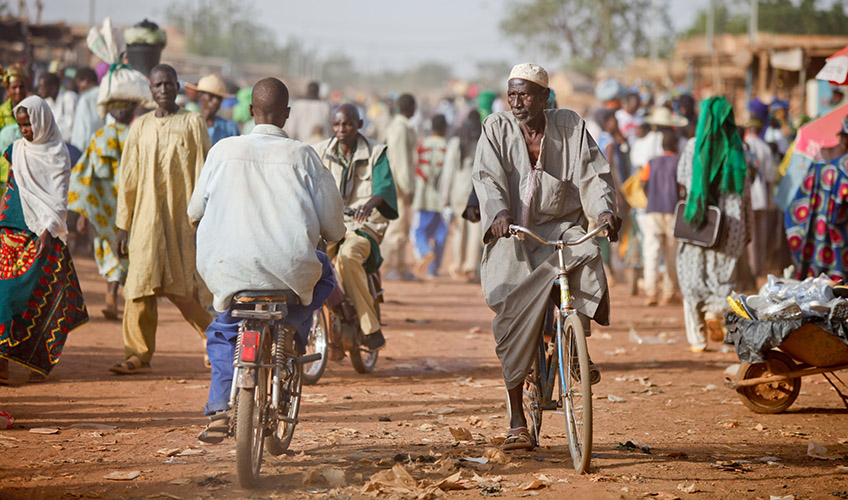Violent extremism driven mostly by state abuse in central Sahel
The rise in violent extremism in the central Sahel is mainly a reaction to states’ inability to provide security and services, and has little to do with religious ideology, our new research reveals.

Drawing on extensive interviews with Fulani communities in Burkina Faso, Mali and Niger, the report, ‘If victims become perpetrators‘, looks at why young people may or may not choose to join an armed group.
We found that state abuse and unchecked corruption are the main factors behind some young people’s decision to join armed groups.
“Real or perceived abuse by government authorities – often with impunity – has led to frustrations that violent extremists take advantage of,” explained Marco Simonetti, our West Africa Regional Manager. “These groups use criticism of state corruption to incite communities to embrace an alternative political and social model, inspired by the Sharia.”
“In reality, the appeal of global jihad carries much less weight than the unlawful detention of a loved one, the struggle for access to grazing areas or the desire for recognition within the village,” he added.
The findings also reveal a complete lack of trust among the communities in the defence and security forces, prompting a stark warning against a ‘total security’ approach to tackling violent extremism in the region.
While poverty and unemployment are widespread, the report found that improving one’s status and recognition within the community, rather than strict material gain, is a stronger motivation for young people to join armed groups. This is because unemployment is heavily stigmatised across the region. Belonging to a violent extremist group, however, does not always translate into having more money.
“Youth unemployment is a major problem in our community,” said one interviewee from Niger. “That’s the main motivation for young people sympathising with armed groups.”
Another interviewee from Niger blamed “the impunity and partiality of the justice system”, which they said “creates more frustrations than jihadism”.
In particular, the report warns that the G5 Sahel Joint Force – the counter-terrorism force drawn from five regional armies and supported financially and politically by international powers – risks undermining its aim to reduce violence and could instead weaken regional stability and communities’ wellbeing.
The report calls on international partners operating in the Sahel region to support national governments to be more accountable towards their citizens, improve access to justice and reduce inequality, which is pushing young people to the margins of society and into the hands of extremist groups.
It stresses the need to improve supervision of the armed forces and create job opportunities for young people, including through managing migration effectively.
“Given the escalation of violent extremism in the central Sahel, the international community needs to review its policies on the matter, and to support the Sahel states in understanding and tackling the root causes of extremist violence,” Simonetti added.



